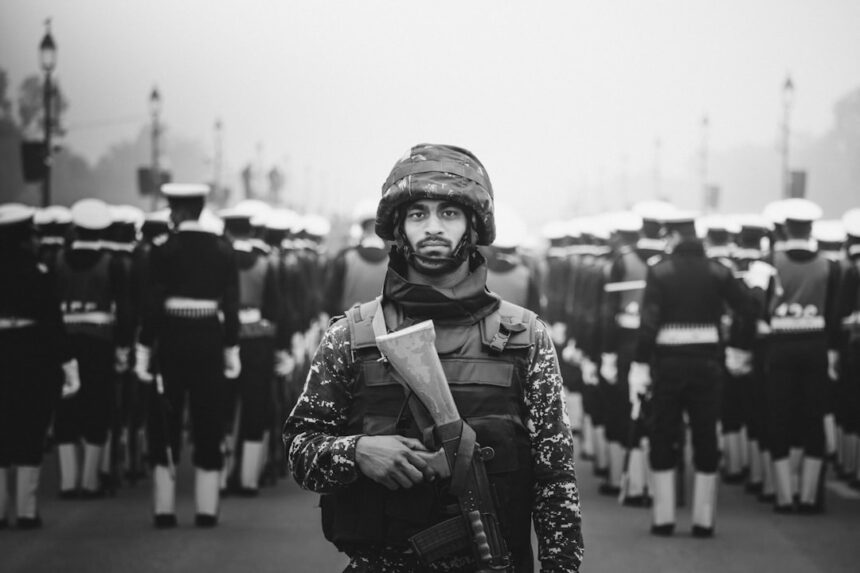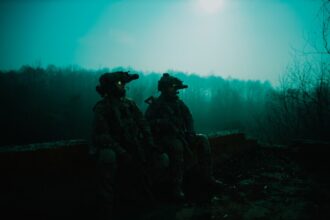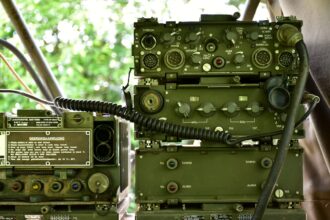The fear of televised military failure is a complex phenomenon that intertwines psychological, social, and political dimensions. This fear often stems from the inherent vulnerability that comes with exposing military operations to the public eye. When military actions are broadcasted live or reported in real-time, the stakes are raised significantly.
Audiences are not merely passive observers; they become emotionally invested in the outcomes, leading to heightened anxiety about potential failures. This fear is compounded by the immediacy of modern media, where images and narratives can spread rapidly, influencing public sentiment almost instantaneously. Moreover, the fear of failure is not limited to the military personnel involved; it extends to the broader society that supports these operations.
Citizens often perceive military success as a reflection of national strength and pride. Conversely, failures can evoke feelings of shame, vulnerability, and insecurity. The psychological burden of witnessing a military setback on television can lead to a collective sense of dread, as people grapple with the implications of such failures for their safety and national identity.
Key Takeaways
- The fear of televised military failure is a common and understandable reaction to the portrayal of armed forces struggling or facing defeat on television.
- Historical examples, such as the Vietnam War and the Gulf War, demonstrate how televised military failures can significantly impact public opinion and perception of military actions.
- The media plays a crucial role in shaping public perceptions of military failure, often influencing public opinion and potentially impacting national security.
- Coping mechanisms, such as contextualizing the events and providing accurate information, can help individuals deal with the fear and psychological effects of witnessing military failure on television.
- Ethical considerations and strategies for media management are essential in addressing the potential for propaganda and misinformation during times of televised military failure, with implications for society and national security.
Historical examples of televised military failures
Throughout history, several televised military failures have left indelible marks on public consciousness. One of the most notable examples is the Vietnam War, which was one of the first conflicts to be extensively covered by television. Graphic images of combat, civilian casualties, and the stark realities of war were broadcast into living rooms across America.
The Tet Offensive in 1968, in particular, showcased the stark contrast between official government narratives and the brutal realities on the ground. The images of American soldiers struggling against an unexpected and fierce enemy led to a significant shift in public opinion, ultimately contributing to widespread anti-war sentiment. Another poignant example is the Gulf War in 1991, which was characterized by its extensive media coverage.
While initially portrayed as a swift and decisive victory for coalition forces, subsequent reports revealed the complexities and human costs of the conflict. The images of returning soldiers and civilian casualties began to challenge the narrative of a clean and successful military operation. These televised moments not only shaped public perception but also influenced political discourse regarding military engagement and intervention strategies in future conflicts.
The impact of televised military failure on public opinion

Televised military failures can have profound effects on public opinion, often leading to a significant erosion of trust in government institutions and military leadership. When citizens witness failures unfold on their screens, they may begin to question the competence and integrity of those in charge. This skepticism can manifest in various ways, including protests, calls for accountability, and shifts in voting behavior.
The emotional weight of seeing soldiers in distress or civilians suffering can galvanize public outrage and lead to demands for policy changes. Furthermore, the impact on public opinion is not uniform; it can vary based on factors such as political affiliation, media consumption habits, and personal experiences with military service. For instance, individuals with strong patriotic sentiments may initially rally around their troops during a televised failure but may later express disillusionment if they perceive a lack of transparency or accountability from military leaders.
Conversely, those who are critical of military interventions may find validation in these failures, using them as evidence to support their anti-war stance. This complex interplay highlights how televised military failures can polarize public opinion and reshape societal attitudes toward war and peace.
The role of media in shaping perceptions of military failure
| Media Type | Impact on Perceptions |
|---|---|
| News Coverage | Can influence public opinion and shape perceptions of military failure through framing and selective reporting |
| Social Media | Has the potential to spread misinformation and amplify negative perceptions of military failure |
| Documentaries | Can provide in-depth analysis and historical context, shaping perceptions of military failure in a more nuanced way |
| Propaganda | Can be used to manipulate perceptions and portray military failure in a more positive light |
The media plays a crucial role in shaping perceptions of military failure through its framing and narrative choices. Journalists have the power to highlight specific aspects of a conflict while downplaying others, influencing how audiences interpret events. For instance, a focus on heroic narratives may overshadow discussions about strategic miscalculations or ethical dilemmas faced by military personnel.
Conversely, an emphasis on failure can lead to sensationalism that exacerbates public fear and anxiety. Moreover, the rise of social media has transformed how military failures are reported and consumed. In an era where information spreads rapidly through platforms like Twitter and Facebook, traditional media outlets face pressure to deliver breaking news quickly.
This urgency can sometimes result in incomplete or sensationalized coverage that amplifies public fears about military failures. As audiences increasingly turn to social media for news updates, they may encounter a diverse array of opinions and interpretations that further complicate their understanding of military events.
Coping mechanisms for dealing with the fear of televised military failure
In light of the pervasive fear surrounding televised military failures, individuals often seek coping mechanisms to manage their anxiety and distress. One common approach is engaging in critical media consumption—actively questioning the narratives presented by news outlets and seeking out diverse perspectives. By doing so, individuals can cultivate a more nuanced understanding of military conflicts and mitigate feelings of helplessness that may arise from sensationalized reporting.
Another effective coping strategy involves fostering community discussions about military failures. By sharing experiences and perspectives with others, individuals can process their emotions collectively and gain support from peers who may share similar fears or concerns. These discussions can take place in various settings, from informal gatherings to organized forums focused on military issues.
Such communal engagement not only helps individuals cope with their fears but also encourages civic participation and informed dialogue about national security matters.
The psychological effects of witnessing military failure on television

Witnessing military failure on television can have significant psychological effects on viewers, ranging from acute stress responses to long-term emotional distress. For many individuals, particularly those with personal connections to the military or prior experiences with trauma, these broadcasts can trigger feelings of anxiety, helplessness, or even post-traumatic stress disorder (PTSD). The graphic nature of some coverage can evoke visceral reactions that linger long after the broadcast ends.
Additionally, repeated exposure to images of military failure can lead to desensitization or normalization of violence in society. As viewers become accustomed to seeing such events unfold on their screens, they may develop a diminished emotional response over time. This desensitization can have broader implications for societal attitudes toward war and conflict, potentially leading to apathy or indifference regarding the human costs associated with military engagements.
The relationship between televised military failure and national security
The relationship between televised military failure and national security is intricate and multifaceted. On one hand, public perception shaped by media coverage can influence government decisions regarding military strategy and engagement. If citizens express strong disapproval or fear following a televised failure, policymakers may feel pressured to alter their approach or withdraw troops from conflict zones.
This dynamic underscores how public sentiment can directly impact national security considerations. On the other hand, there is also a concern that excessive focus on televised failures may undermine national morale and cohesion during times of conflict. When media coverage emphasizes setbacks rather than successes or resilience, it can create an environment of despair that affects both civilian support for military operations and troop morale.
Striking a balance between transparency in reporting and maintaining national unity becomes a critical challenge for both media outlets and government officials.
The ethical considerations of broadcasting military failures
Broadcasting military failures raises several ethical considerations that warrant careful examination. One primary concern is the potential for exploitation—using images of suffering or defeat for sensationalist purposes rather than fostering informed discourse about complex issues surrounding war. Media outlets must navigate the fine line between providing necessary coverage and respecting the dignity of those affected by conflict.
Additionally, there are ethical implications related to national security and operational security when broadcasting sensitive information about military operations. Revealing details about failures could inadvertently compromise ongoing missions or endanger personnel involved in future operations. Journalists must weigh their responsibility to inform the public against potential risks posed by disclosing certain information.
Strategies for media management during times of military failure
Effective media management during times of military failure is essential for maintaining public trust and ensuring responsible reporting practices. One strategy involves establishing clear communication channels between military leadership and media representatives to provide accurate information while minimizing speculation or misinformation. By fostering transparency without compromising operational security, both parties can work together to present a more balanced narrative.
Another important strategy is promoting media literacy among audiences. Encouraging critical thinking skills enables viewers to discern between sensationalized reporting and factual accounts of events. Media organizations can play a role in this by providing context around coverage—explaining complexities behind military operations rather than reducing them to simplistic narratives focused solely on failure.
The potential for propaganda and misinformation in televised military failure
The potential for propaganda and misinformation surrounding televised military failures is significant, particularly in an era characterized by rapid information dissemination through social media platforms. Various actors—ranging from state-sponsored entities to independent groups—may exploit moments of failure to advance specific agendas or manipulate public sentiment. This manipulation can distort perceptions of reality and complicate efforts to engage in informed discussions about national security.
Moreover, misinformation can exacerbate existing fears surrounding military failures by spreading false narratives or exaggerated claims about events on the ground. As audiences encounter conflicting information from multiple sources, they may struggle to discern truth from fiction—leading to confusion and further eroding trust in traditional media outlets.
The future of televised military failure and its implications for society
As technology continues to evolve, the future of televised military failure will likely be shaped by advancements in communication methods and audience engagement strategies. With the rise of virtual reality (VR) and augmented reality (AR), viewers may soon experience immersive representations of conflicts that could deepen emotional responses while also raising ethical questions about representation. Furthermore, as society grapples with increasing polarization around issues related to war and peace, understanding how televised failures are framed will become even more critical.
Media organizations will need to navigate these challenges thoughtfully—balancing their role as informers while fostering constructive dialogue about complex issues surrounding national security. In conclusion, the fear surrounding televised military failures is multifaceted—encompassing psychological impacts on individuals, shifts in public opinion, ethical dilemmas faced by journalists, and broader implications for national security discourse. As society continues to confront these challenges head-on through critical engagement with media narratives surrounding conflict, it becomes imperative that both audiences and media professionals work together toward fostering informed discussions about war’s complexities rather than succumbing solely to fear-driven narratives shaped by sensationalism or misinformation.
In exploring the theme of “The Fear of Televised Military Failure,” it’s essential to consider the broader implications of media coverage on military operations and public perception. An insightful related article can be found on the website “In The War Room,” which delves into the intricate dynamics between media portrayal and military strategy. This article provides a comprehensive analysis of how televised broadcasts can influence both public opinion and military decision-making processes. For a deeper understanding, you can read more about these dynamics by visiting the article on their website: In The War Room.
WATCH THIS! From Tehran to Blackwater: The Real Story
FAQs
What is the fear of televised military failure?
The fear of televised military failure refers to the concern that military operations, particularly those involving high stakes or significant risk, may be broadcasted and scrutinized by the public through television and other media platforms.
Why is there a fear of televised military failure?
There is a fear of televised military failure because the public exposure of military setbacks or failures can have significant political, social, and psychological implications. It can impact public opinion, government decision-making, and the morale of both military personnel and the general population.
How does the fear of televised military failure impact military operations?
The fear of televised military failure can impact military operations by influencing strategic decision-making, operational tactics, and the level of risk that military leaders are willing to take. It can also affect the way in which military actions are communicated and portrayed to the public.
What are some historical examples of the fear of televised military failure influencing military operations?
Historical examples of the fear of televised military failure influencing military operations include the Vietnam War, where the extensive media coverage of the conflict contributed to growing public opposition and ultimately influenced the decision-making of political leaders.
How do military organizations address the fear of televised military failure?
Military organizations address the fear of televised military failure by implementing strategic communication plans, media management strategies, and public relations efforts to shape the narrative surrounding military operations. They also seek to balance the need for transparency with the potential negative impacts of publicized military setbacks.




